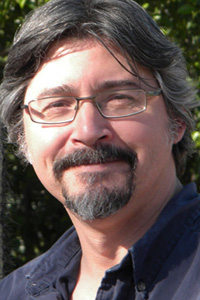UW welcomes new Nelson Institute director
Paul Robbins, the director of the School of Geography and Development at the University of Arizona, has been named director of the Nelson Institute for Environmental Studies at the University of Wisconsin–Madison.

Robbins
“Paul brings years of experience as a researcher as well as administrative leadership,” says UW–Madison Provost Paul M. DeLuca Jr. “His vision, scholarship, energy and leadership will ensure that the Nelson Institute achieves at the highest level.”
The Nelson Institute, founded in 1970 and renamed in 2002 for former Wisconsin U.S. Sen. Gaylord Nelson, is dedicated to interdisciplinary environmental scholarship, education and community engagement. It includes four research centers — the Center for Climatic Research; the Center for Culture, History, and Environment; the Center for Sustainability and the Global Environment; and the Land Tenure Center.
As director, Robbins will oversee the institute’s mission of serving as a world leader in addressing environmental changes.
“When you talk about research on energy, wildlife, transportation…you name it, you talk about the University of Wisconsin,” Robbins says. “With so many problems facing the Earth, making the Nelson Institute the international destination for knowledge and community outreach has to be the primary goal.”
Robbins, a UW–Madison graduate, has served for two years as director at Arizona’s school of geography and development, overseeing 25 regular faculty, more than 50 adjunct and affiliated faculty, more than 70 graduate students and 250 undergraduate majors.
Robbins helped establish the School of Geography and Development and during his time as director has expanded its degree offerings, including two new master’s degree programs and an interdisciplinary environmental studies major. His research focuses on humans’ interactions with nature and the politics of natural resource management in a range of environments, from the forests and pastures of rural India to the lawns of the American suburbs.
He has taught a range of topics at both the University of Arizona and Ohio State University, from environmental studies and natural resource policy to social theory.
“Environmental education has become much more than earth science,” Robbins says. “Students need and want to learn about how cities function ecologically, how our ideas about nature are formed and changed, how the environment impacts the economy and how to create institutions to cooperate for common benefits. Because this generation of students is so hungry for interdisciplinary knowledge, teaching this stuff means learning all the time.”
The Nelson Institute has an annual operating budget of $3.2 million, endowments totaling $9.3 million and averages $4.5 million in external research awards per year. It is home to 18 budgeted and 140 affiliated faculty members from more than 40 natural and social science, engineering and humanities departments across the campus.
Interim director Gregg Mitman has led the institute since 2008. Mitman will return to the faculty and resume his environmental history research as the Vilas Research and William Coleman Professor of the History of Science, Medical History, and Environmental Studies.
Robbins says he’s looking forward to taking his interests and experience to expand the links between interdisciplinary science, community-based inquiry, sustainability, and the core goals and strategies of the institute.
“We need to build teams, different from ones we have seen before, across social studies, environmental sciences and humanities,” Robbins says, “and we need to learn from diverse publics and take our research cues from the people of Wisconsin and from around the world. That’s Nelson’s job, and I am excited to get started. My copy of Aldo Leopold’s ‘A Sand County Almanac’ is sitting on my bedside nightstand.”
In addition to his bachelor’s degree in anthropology from UW–Madison, Robbins holds a master’s degree and doctorate in geography, both from Clark University.
He will earn $210,000 as director and begin Sept. 1.
